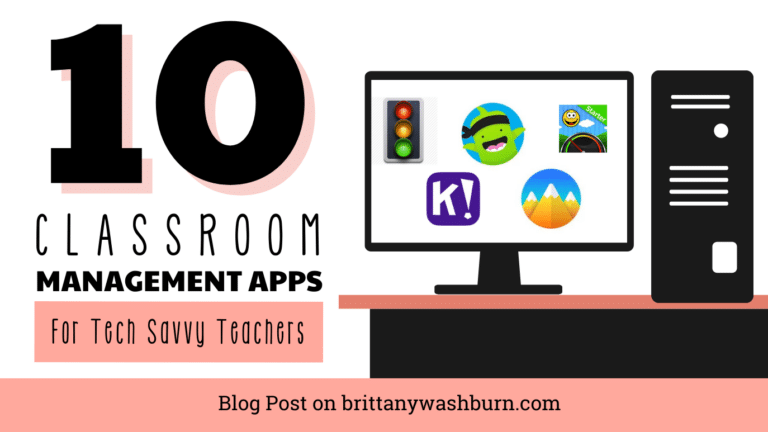PBIS-Friendly Consequences

PBIS stands for Positive Behavior Interventions and Supports. It is an approach that is usually implemented school-wide, and as such it can leave individual teachers scrambling to figure out how they are going to make it work for their classroom on a day to day basis.
While PBIS offers tons of great ideas for rewards and incentives, it can sometimes be a bit trickier to navigate when dealing with persistent disruptive behavior. Here are some ideas that might help you through those rough days.
Methods for Administering PBIS Consequences
Give Delayed Consequences
The delayed/anticipatory consequence is taken from Love and Logic. It has the power of an immediate consequence, but gives you time to think (and plan) when your kids pull the unexpected. The next time your kids do something upsetting, try saying the following:
“I’m going to have to do something about that. We’ll talk later. Try not to worry.”
This strategy allows you time to anticipate whose support you might need, how the child might react, and how to make sure that you can follow through with a logical, appropriate consequence. This also lets the child “anticipate” a wide range of possible consequences.
Use Logical Consequences
Logical consequences provide choices within firm limits, and are similar to what would happen to an adult in a comparable situation.
- When talking to students after they have made a poor choice, get down on their level by sitting in a chair or bending down.
- Be calm and be empathetic (but not condescending):
- “This is sad for you…
- State the offense:
- “Due to you not doing your work while we were doing it together…
- Provide the consequence (consequence should match the severity of the behavior):
- “You will be finishing it during recess”
- Walk away. Do not engage in further conversation about it.
Other behaviors and consequences might include:
Name calling = say something nice to that person on two separate occasions
Disruptive during lunch = eat lunch alone
Cheat on test = get failing grade
Focus on Empathy
There is nothing more satisfying to someone set on being argumentative and defiant than seeing the face of their opponent turn red. Pick a “one-liner” that works best for you – one that you can say with empathy (not sarcasm). For example:
“I value you too much to argue.”
“How sad.”
“Thanks for sharing.”
“That’s an option.”
Do Not Give Warnings
Provide a PBIS consequence upon the first negative behavior, period.
Display Your Behavior Matrix

A behavior matrix should be placed in a prominent location in the classroom for reference. Everyone should have easy access to expectations.
Role-Play Behaviors
Illustrate what each specific behavior looks like in action rather than just telling students what you expect.
Refresh your Behavior Expectations and/or Reward Options
Maybe the incentives you are offering simply aren’t motivating the students you are having trouble with. Or maybe they feel the good behavior they are best able to practice regularly is getting overlooked, and have lost buy-in as a result. Get student input, then overhaul your behavior matrix until it has something that appeals to every member of your classroom community.
Here are a few ideas that you might want to include in your lists:
| Rewarded Behaviors | Rewards |
| – Earning a specific number of points in a behavioral system. – Consider starting every day with a number of points that can then be added to or lost, so even the “quiet kids” are still inching upwards. – Following directions without additional reminders. – Participation and work completion. – Independently following class procedures. | – Special chair – Trophy/sash/crown – Lunch with a staff member – Raffle tickets for prize box – Games or extra recess – Choice of Field Day games – Pajama/Hat/Sunglasses Day – Talent Show – Choosing songs at the School Dance or other school event – Class store where students can choose what rewards they want |
Final Tips
- Use a digital PBIS Management System
- PBIS Rewards is a completely digital PBIS Management System. It works like a debit card as students earn points for demonstrating the expected behaviors. Kickboard software is another system to help you keep track of behavior and incentives digitally.
- A digital management system can also facilitate communication between teachers about student behavior in different settings. PBIS-friendly consequences given can also be recorded and shared.
- Consider advocating for building rewards for teachers into your school’s PBIS. Systems that you feel like you are a part of are a lot easier to help others become a part of.
| PBIS Rewards for Educators | |
| Free: – Duty-free day – Positive student/family testimonials posted on social media – Door decoration – Faculty meeting pass – Dress down day – Preferred parking | $20 or less: – Gift card – Small trophy – Lunch, breakfast or sweet treat – Personalized t-shirt/accessory – Book/magazine – Flowers – Class photo with frame |
- Your Teacher’s Pet Creature is a way to introduce classroom management concepts and build a positive classroom environment for preschoolers. The program encourages making good choices, classroom etiquette and more while providing a visual reminder of the expectations.
Conclusion
It is totally possible to administer consequences that are in line with a PBIS system.

Top 8 Apps and Programs for Streamlining Classroom Management and Assessment
The integration of technology has become the underpinning which supports teachers as they manage their…
5 Ways to Incorporate Technology into Daily Classroom Routines
Chromebook Care Tips for Teachers
Elgin, IL – 04/02/2020: A chromebook being used at home for a remote classroom during…
PBIS-Friendly Consequences
PBIS stands for Positive Behavior Interventions and Supports. It is an approach that is usually…
Tips for Helping Students with Disabilities Get the Most Out of Your Gen Ed Tech Class
Students have such a wide range of abilities that it can be very challenging to…
Flexible seating guide for computer lab teachers
Incorporating flexible seating in computer labs has been gaining popularity among educators who seek to…











